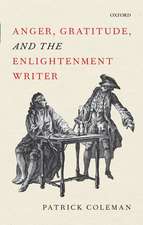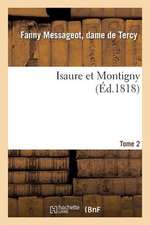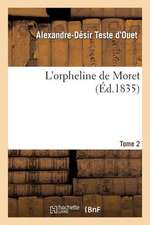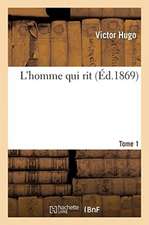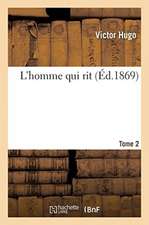Sentimental Education
Autor Gustave Flauberten Limba Engleză Paperback
| Toate formatele și edițiile | Preț | Express |
|---|---|---|
| Paperback (8) | 65.01 lei 10-16 zile | +24.91 lei 10-14 zile |
| OUP OXFORD – 3 mar 2016 | 65.01 lei 10-16 zile | +24.91 lei 10-14 zile |
| Penguin Books – 4 feb 2004 | 70.51 lei 26-32 zile | +27.14 lei 10-14 zile |
| University of Minnesota Press – 16 ian 2024 | 124.54 lei 3-5 săpt. | +31.05 lei 10-14 zile |
| CreateSpace Independent Publishing Platform – | 145.85 lei 3-5 săpt. | |
| Digireads.com – 5 feb 2019 | 113.64 lei 6-8 săpt. | |
| Macritchie Press – 17 mai 2008 | 211.16 lei 6-8 săpt. | |
| Simon & Brown – 30 oct 2018 | 265.95 lei 38-44 zile | |
| Simon & Brown – 14 noi 2018 | 276.45 lei 38-44 zile | |
| Hardback (2) | 318.43 lei 38-44 zile | |
| Simon & Brown – 30 oct 2018 | 318.43 lei 38-44 zile | |
| Simon & Brown – 15 noi 2018 | 339.39 lei 38-44 zile |
Preț: 145.85 lei
Nou
Puncte Express: 219
Preț estimativ în valută:
27.91€ • 29.21$ • 23.23£
27.91€ • 29.21$ • 23.23£
Carte disponibilă
Livrare economică 08-22 martie
Preluare comenzi: 021 569.72.76
Specificații
ISBN-13: 9781530607099
ISBN-10: 1530607094
Pagini: 554
Dimensiuni: 152 x 229 x 28 mm
Greutate: 0.73 kg
Editura: CreateSpace Independent Publishing Platform
ISBN-10: 1530607094
Pagini: 554
Dimensiuni: 152 x 229 x 28 mm
Greutate: 0.73 kg
Editura: CreateSpace Independent Publishing Platform
Descriere
Descriere de la o altă ediție sau format:
'For certain men the stronger their desire, the less likely they are to act.'With his first glimpse of Madame Arnoux, Frédéric Moreau is convinced he has found his romantic destiny, but when he pursues her to Paris the young student is unable to translate his passion into decisive action. He also finds himself distracted by the equally romantic appeal of political action in the turbulent years leading up to the revolution of 1848, and by the attractions of three other women, each of whom seeks to make him her own: a haughty society lady, a capricious courtesan, and an artless country girl.Flaubert offers a vivid and unsparing portrait of the young men of his generation, struggling to salvage something of their ideals in a city where corruption, consumerism, and a pervasive sense of disenchantment undermine all but the most compromised erotic, aesthetic, and social initiatives. Sentimental Education combines thoroughgoing irony with an impartial but unexpectedly intense sympathy in a novel whose realism competes with that of Balzac and whose innovations in narrative plot and perspective mark a turning-point in the development of literary modernism.ABOUT THE SERIES: For over 100 years Oxford World's Classics has made available the widest range of literature from around the globe. Each affordable volume reflects Oxford's commitment to scholarship, providing the most accurate text plus a wealth of other valuable features, including expert introductions by leading authorities, helpful notes to clarify the text, up-to-date bibliographies for further study, and much more.
'For certain men the stronger their desire, the less likely they are to act.'With his first glimpse of Madame Arnoux, Frédéric Moreau is convinced he has found his romantic destiny, but when he pursues her to Paris the young student is unable to translate his passion into decisive action. He also finds himself distracted by the equally romantic appeal of political action in the turbulent years leading up to the revolution of 1848, and by the attractions of three other women, each of whom seeks to make him her own: a haughty society lady, a capricious courtesan, and an artless country girl.Flaubert offers a vivid and unsparing portrait of the young men of his generation, struggling to salvage something of their ideals in a city where corruption, consumerism, and a pervasive sense of disenchantment undermine all but the most compromised erotic, aesthetic, and social initiatives. Sentimental Education combines thoroughgoing irony with an impartial but unexpectedly intense sympathy in a novel whose realism competes with that of Balzac and whose innovations in narrative plot and perspective mark a turning-point in the development of literary modernism.ABOUT THE SERIES: For over 100 years Oxford World's Classics has made available the widest range of literature from around the globe. Each affordable volume reflects Oxford's commitment to scholarship, providing the most accurate text plus a wealth of other valuable features, including expert introductions by leading authorities, helpful notes to clarify the text, up-to-date bibliographies for further study, and much more.
Recenzii
a very fine translation by Helen Constantine, and IMO Sentimental Education deserves its place in 1001 Books
It's a fascinating novel & it's good to be able to read more Flaubert who is mostly remembered now for just one book, Madame Bovary.
It's a fascinating novel & it's good to be able to read more Flaubert who is mostly remembered now for just one book, Madame Bovary.
Notă biografică
Gustave Flaubert (12 December 1821 - 8 May 1880) was a French novelist. Highly influential, he has been considered the leading exponent of literary realism in his country. He is known especially for his debut novel Madame Bovary (1857), his Correspondence, and his scrupulous devotion to his style and aesthetics. The celebrated short story writer Guy de Maupassant was a protégé of Flaubert. In 1850, after returning from Egypt, Flaubert began work on Madame Bovary. The novel, which took five years to write, was serialized in the Revue de Paris in 1856. The government brought an action against the publisher and author on the charge of immorality, which was heard during the following year, but both were acquitted. When Madame Bovary appeared in book form, it met with a warm reception. In 1858, Flaubert travelled to Carthage to gather material for his next novel, Salammbô. The novel was completed in 1862 after four years of work. Drawing on his youth, Flaubert next wrote L'Éducation Sentimentale (Sentimental Education), an effort that took seven years. This was his last complete novel, published in the year 1869. Flaubert famously avoided the inexact, the abstract and the vaguely inapt expression, and scrupulously eschewed the cliché. In a letter to George Sand he said that he spends his time "trying to write harmonious sentences, avoiding assonances." Flaubert believed in, and pursued, the principle of finding "le mot juste" ("the right word"), which he considered as the key means to achieve quality in literary art. He worked in sullen solitude-sometimes occupying a week in the completion of one page-never satisfied with what he had composed. In Flaubert's correspondence he intimates this, explaining correct prose did not flow out of him and that his style was achieved through work and revision.

